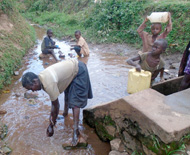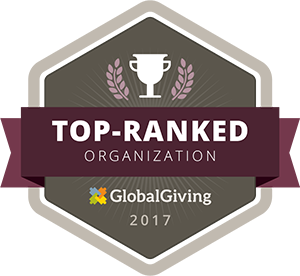Cleanliness As Heritage
Eliminating violence against women and girls caused by water scarcity.ISSUE:
We are going to address the issue of "violence against women and young girls caused by water scarcity" which has six main roots. First, we have a spring at the bottom of a steep hill which takes many hours to get to and from. Women and girls are vulnerable to violence along the way. Because many people use this one spring, there is a lot of competition and thus more physical violence because they fight for water. Vulnerable people stay back even though they arrived at the spring first. The second root is overpopulation. People are afraid of using birth control. Sometimes they avoid birth control because of cultural mindsets or rumors (or myths) based on their described advantages or disadvantages. When there is overpopulation, a limited number of public standpipes creates competition and in some cases fighting. Furthermore, producing many children contributes to poverty and prevents people from participating in problem-solving for their good. Our traditional culture is the third root of this problem. When women can't access clean water it becomes difficult to accomplish other domestic activities. This results in increased conflicts at home, because husbands, in general, claim their needs are a priority. Poor hygiene is another reason this problem exists. This is linked to water scarcity and results in polygamy because when a wife is not considered hygienic the husband seeks out another, cleaner woman. Finally, ignorance of and not valuing women's rights and women's contributions to the home as well as the lack of sharing household responsibilities between women and men both contribute to violence against women.
MISSION:
To reduce violence against young girls and women in our community by having access to a new, accessible water source.
THEORY OF CHANGE:
We believe that:
- If a woman has access to water she can save time for other revenue-related activities, which allow her to contribute to the well-being of her home. As a result, once a woman can make income it helps reduces violence inflicted by her husband.
- If men value and respect women's rights, there will be no more violence triggered by water scarcity. In the end, if there is no violence children will attend school successfully which will contribute to breaking the barriers of the rates of national education.
- If we provide water treatment skills to our community members, it will improve everyone's welfare and reduce hygiene-related diseases.
- If we provide family planning education, it will reduce overpopulation which overburdens the existing water infrastructure.
SOLUTION:
We propose installing water storage tanks and trucking in water which we will sell across six villages and we will use funds from water sales to address the issue of violence against women. Our social change program will offer domestic violence training to raise awareness of its consequences. We will also sensitize community members about the cultural mindsets that force many women to be overwhelmed by household duties and which allow men to force women into certain roles. We will have family planning workshop for 50 couples who will become role models for the rest of the community. Finally, men and women will decide to work collectively and respectively and become problem solvers instead of problem makers. We will organize a 3-day workshop on water treatment and hygiene to 60 couples. Then we will select the most committed 20 couples to carry out the same workshop to 200 couples over 6 months. The trainers are committed to following-up with trainees for 6 months to check on their progress and to witness changes in the community.
12-MONTH GOALS:
- After one year, there will be a reduction of domestic violence cases by 40%
- After one year, 65% of children will attend school on time
- Within a year, there will be a reduction of poor hygiene cases by 60 % in our community
- After one year, 40% of community members will use birth control
- After a year, 20% of our trainees will share households tasks
Project Details

Venture Cost: $20,251
Location: Nduba Sector, Gasabo District
Team Members: 30
Beneficiaries: 3240
Global Grassroots
1950 Lafayette Road
Suite 200, Box 1
Portsmouth, NH 03801 USA
Tel (+1) 603.787.5759
info@globalgrassroots.org
© 2023 Global Grassroots 501(c)(3) Non-Profit







Contact Us